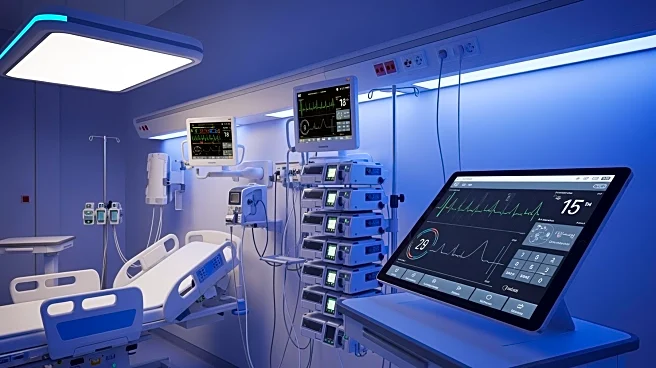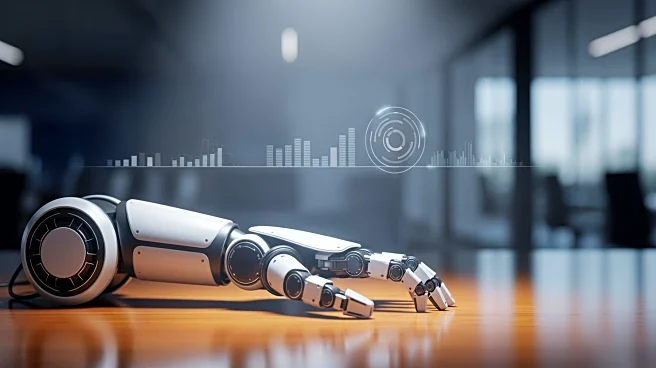What's Happening?
Hospital property management is undergoing a significant transformation as it increasingly integrates health IT innovations to improve patient care and operational efficiency. In 2026, the role of property managers
in healthcare facilities extends beyond traditional maintenance to include managing building systems, patient safety, cybersecurity, and compliance. The integration of health IT is crucial for ensuring that hospital environments do not compromise patient care. This includes the use of smarter building automation, energy tracking, and systems integration to enhance hospital operations. Property managers are now leveraging data analytics to predict maintenance needs and improve energy efficiency, which in turn supports better patient outcomes and operational reliability.
Why It's Important?
The integration of health IT into hospital property management is vital for several reasons. It enhances the operational efficiency of healthcare facilities, reduces costs, and improves patient safety. By adopting advanced technologies such as AI-driven maintenance predictions and IoT sensors, hospitals can better manage resources and prevent issues before they escalate. This shift is also crucial for maintaining compliance with evolving healthcare regulations and standards. Furthermore, the focus on sustainability and energy efficiency not only reduces operational costs but also aligns with broader environmental goals. As hospitals become more reliant on technology, the role of property managers becomes increasingly important in ensuring that these systems function seamlessly to support patient care.
What's Next?
As hospitals continue to adopt health IT innovations, property managers will need to focus on further integrating these technologies into their operations. This includes enhancing cybersecurity measures to protect sensitive networks and ensuring that all systems are compliant with healthcare regulations. The ongoing shift towards sustainability will also require property managers to implement energy-efficient solutions and monitor their impact on hospital operations. Additionally, as technology becomes more embedded in hospital infrastructure, property managers will play a critical role in bridging the gap between tech vendors, hospital administrators, and maintenance staff to ensure smooth operations and improved patient care.
Beyond the Headlines
The integration of health IT in hospital property management has deeper implications for the healthcare industry. It represents a cultural shift towards data-driven decision-making and highlights the importance of collaboration between technology and human intuition. This transformation also underscores the need for continuous education and training for property managers to keep pace with technological advancements. Moreover, the focus on sustainability and energy efficiency reflects a growing awareness of environmental responsibility within the healthcare sector. As hospitals become more technologically advanced, the human element remains crucial in ensuring that these innovations translate into tangible benefits for patients and staff.









